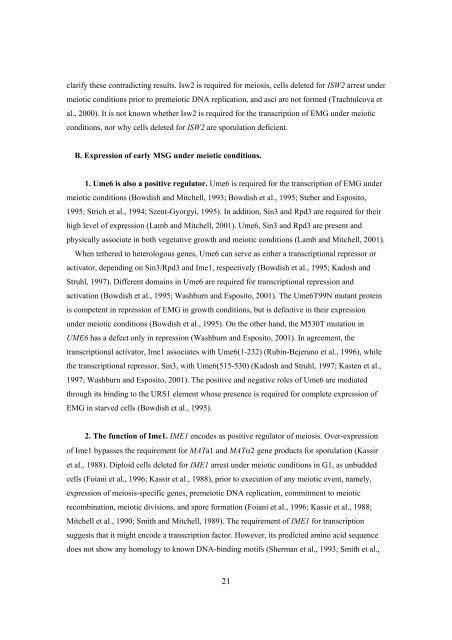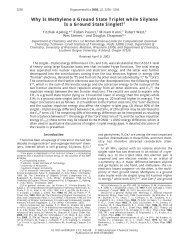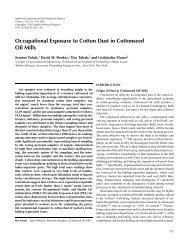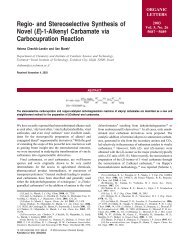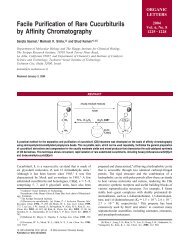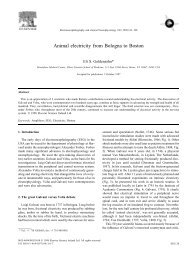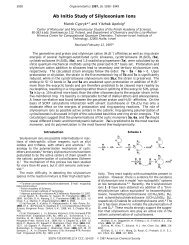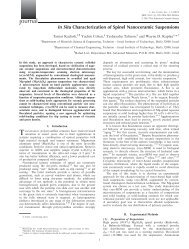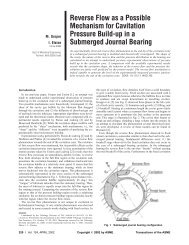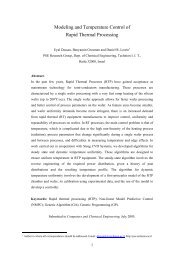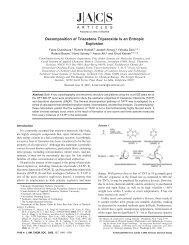Transcriptional regulation of meiosis in budding yeast
Transcriptional regulation of meiosis in budding yeast
Transcriptional regulation of meiosis in budding yeast
Create successful ePaper yourself
Turn your PDF publications into a flip-book with our unique Google optimized e-Paper software.
clarify these contradict<strong>in</strong>g results. Isw2 is required for <strong>meiosis</strong>, cells deleted for ISW2 arrest under<br />
meiotic conditions prior to premeiotic DNA replication, and asci are not formed (Trachtulcova et<br />
al., 2000). It is not known whether Isw2 is required for the transcription <strong>of</strong> EMG under meiotic<br />
conditions, nor why cells deleted for ISW2 are sporulation deficient.<br />
B. Expression <strong>of</strong> early MSG under meiotic conditions.<br />
1. Ume6 is also a positive regulator. Ume6 is required for the transcription <strong>of</strong> EMG under<br />
meiotic conditions (Bowdish and Mitchell, 1993; Bowdish et al., 1995; Steber and Esposito,<br />
1995; Strich et al., 1994; Szent-Gyorgyi, 1995). In addition, S<strong>in</strong>3 and Rpd3 are required for their<br />
high level <strong>of</strong> expression (Lamb and Mitchell, 2001). Ume6, S<strong>in</strong>3 and Rpd3 are present and<br />
physically associate <strong>in</strong> both vegetative growth and meiotic conditions (Lamb and Mitchell, 2001).<br />
When tethered to heterologous genes, Ume6 can serve as either a transcriptional repressor or<br />
activator, depend<strong>in</strong>g on S<strong>in</strong>3/Rpd3 and Ime1, respectively (Bowdish et al., 1995; Kadosh and<br />
Struhl, 1997). Different doma<strong>in</strong>s <strong>in</strong> Ume6 are required for transcriptional repression and<br />
activation (Bowdish et al., 1995; Washburn and Esposito, 2001). The Ume6T99N mutant prote<strong>in</strong><br />
is competent <strong>in</strong> repression <strong>of</strong> EMG <strong>in</strong> growth conditions, but is defective <strong>in</strong> their expression<br />
under meiotic conditions (Bowdish et al., 1995). On the other hand, the M530T mutation <strong>in</strong><br />
UME6 has a defect only <strong>in</strong> repression (Washburn and Esposito, 2001). In agreement, the<br />
transcriptional activator, Ime1 associates with Ume6(1-232) (Rub<strong>in</strong>-Bejerano et al., 1996), while<br />
the transcriptional repressor, S<strong>in</strong>3, with Ume6(515-530) (Kadosh and Struhl, 1997; Kasten et al.,<br />
1997; Washburn and Esposito, 2001). The positive and negative roles <strong>of</strong> Ume6 are mediated<br />
through its b<strong>in</strong>d<strong>in</strong>g to the URS1 element whose presence is required for complete expression <strong>of</strong><br />
EMG <strong>in</strong> starved cells (Bowdish et al., 1995).<br />
2. The function <strong>of</strong> Ime1. IME1 encodes as positive regulator <strong>of</strong> <strong>meiosis</strong>. Over-expression<br />
<strong>of</strong> Ime1 bypasses the requirement for MATa1 and MATα2 gene products for sporulation (Kassir<br />
et al., 1988). Diploid cells deleted for IME1 arrest under meiotic conditions <strong>in</strong> G1, as unbudded<br />
cells (Foiani et al., 1996; Kassir et al., 1988), prior to execution <strong>of</strong> any meiotic event, namely,<br />
expression <strong>of</strong> <strong>meiosis</strong>-specific genes, premeiotic DNA replication, commitment to meiotic<br />
recomb<strong>in</strong>ation, meiotic divisions, and spore formation (Foiani et al., 1996; Kassir et al., 1988;<br />
Mitchell et al., 1990; Smith and Mitchell, 1989). The requirement <strong>of</strong> IME1 for transcription<br />
suggests that it might encode a transcription factor. However, its predicted am<strong>in</strong>o acid sequence<br />
does not show any homology to known DNA-b<strong>in</strong>d<strong>in</strong>g motifs (Sherman et al., 1993; Smith et al.,<br />
21


